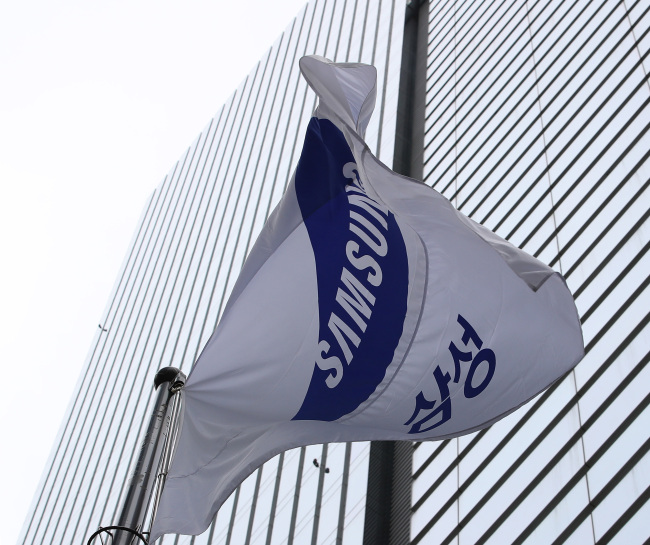Samsung Electronics is logging sturdy business growth in the global markets, but is also facing equally increasing risks overseas causing top officials to become cautious, according to the industry on Monday.
According to a report on sustainable growth released by Samsung on Monday, the tech titan raised nearly 90 percent of its total sales outside of the country last year, continuing to expanding its global presence.
The South Korean firm raised 208 trillion won ($188 billion) in overseas markets in 2017, up 14.5 percent from a year earlier.
The global sales figure marked a whopping 87 percent of its total sales, meaning that the Korea-headquartered company’s performance relies heavily on overseas markets.
 |
(Yonhap) |
Despite upbeat forecasts about the company’s earnings for the second quarter of this year, lower-than-expected sales of its flagship smartphones, China’s anti-monopoly investigation into the chipmaking unit and intensifying competition in the global consumer electronics market are posing threats to the Seoul-based tech giant, industry analysts said.
Chief officers of the company are set to gather for global strategy meetings starting this Friday, during which protecting their performance in light of their heavy reliance on external factors are to be discussed.
“Top officials would take into account the current conditions in the global market to decide on launches of upcoming products and services at the meetings,” a Samsung official said.
Samsung’s chipmaking division will hold their meeting on Friday, while smartphone and consumer electronics units are scheduled to gather on Monday and Tuesday next week each.
According to the Samsung report, the firm raised 81 trillion won in sales in North America and 44.4 trillion won in Europe last year. Its China sales stood at 38.3 trillion won.
In Korea, the company posted 31.6 trillion won in sales.
Due to the growing overseas sales and operations, Samsung’s payment of taxes to governments around the world last year stood at 15.1 trillion won in total. The tax payments skyrocketed by 70 percent, according to the data in the report.
Despite domestic sales for Samsung taking up 13 percent of its total, 81 percent of the tax it paid last year were domestic, as the company’s headquarters is located here, the report also showed.
The other 10 percent were paid in Asian countries, 8 percent in North American and European nations and 1 percent in others.
Some industry officials expect the meetings to serve as an opportunity for Samsung to set a concrete direction for artificial intelligence, a new focus led by its Vice Chairman Lee Jae-yong lately.
“AI strategies may be an important agenda this time as recently seen through Lee’s recent concentration on the new business,” an industry analyst said.
By Song Su-hyun (
song@heraldcorp.com)








![[Today’s K-pop] Blackpink’s Jennie, Lisa invited to Coachella as solo acts](http://res.heraldm.com/phpwas/restmb_idxmake.php?idx=644&simg=/content/image/2024/11/21/20241121050099_0.jpg)